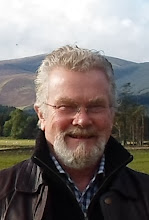This month it is the 65th anniversary of the ending of WWII in the Far East, an anniversary we often forget as most people remember 'VE Day' in May when Hitler and the Nazis were finally defeated. VJ Day was three & a half months later, on the 15th August 1945. Whilst the dropping of the atomic bomb on Hiroshima is annually reviewed by the news media, what is less well remembered are the soldiers and PoWs who returned to their home countries long after the celebrations had ended. These are the forgotten heroes. My father was one of these. He finally returned from Japan via Australia in the winter of 1945. There were no street celebrations for heroes such as him although he had fought heroically in the Battle of Hong Kong in 1941 and also spent over three and a half years in a PoW camp, firstly in Hong Kong and then in Japan.
He returned home on the QSMV Dominion Monarch to a cold, wet, and somewhat depressed England. The only one to greet him was my mother at his billet near Southampton shortly after his arrival. However, my father did return - there were many who did not.
On returning from a visit to Australia we went to Japan earlier this year and, with the help of a Japanese friend, visited the site of the prison camp near the dockyards where my father worked at Habu on the island of Innoshima, some thirty five miles from Hiroshima. It was a moving experience and I have written about my father's wartime years on my website, - it describes Habu camp but for now, I would like to remember those forgotten soldiers who never returned.
While we were at Habu, my friend was asking for the whereabouts of the old PoW camp in the small seaside working port. At the information office, above the ferry terminal, the volunteers working there checked with the local council for us and they were able to establish that the c amp was further along the coast, beyond the dockyard and that we should go to the Buddhist temple nearby for further information. Armed with this information and directions, we travelled down to a little hamlet just outside Habu, almost at the end of a peninsula.
amp was further along the coast, beyond the dockyard and that we should go to the Buddhist temple nearby for further information. Armed with this information and directions, we travelled down to a little hamlet just outside Habu, almost at the end of a peninsula.

We turned inland and drove through the narrow roads, past the old village houses, very similar to the description my father had given me. Just up the hill on the edge of the village there was the Buddhist temple. We were received by a young monk who confirmed the location of the PoW camp, down the hill in the bay at the water's edge.
However, he turned to the subject of the remains of a group of British soldiers (PoWs) who had died in the camp.
The ashes had been kept at the temple since the war of some thirty British soldiers. Sadly, this group were unnamed, - the unsung heroes of our army. The remains are now interred in a tomb under a statue of Buddha which is dedicated to the dead with no name. This was a melancholy scene, accentuated by the cloud and rain. Somehow, this was most appropriate for our visit.
This little article is my way of remembering not only my father, but also the men who gave their lives in a war to bring about peace and freedom in the world.
Labels: Atomic Bomb, Far East, Hiroshima, PoW, Prisoners of War, WW2, WWII





.jpg)

.jpg)





